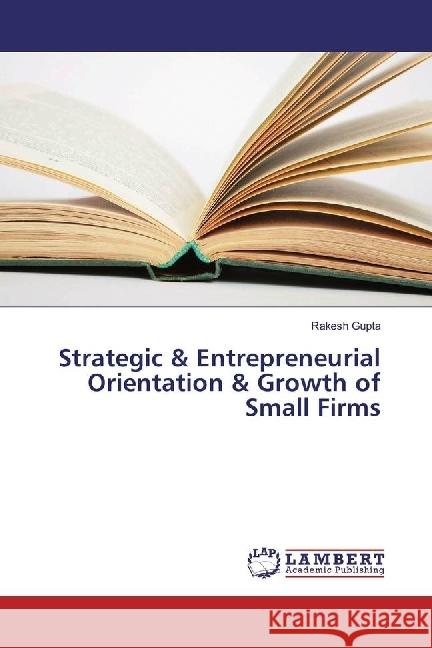Strategic & Entrepreneurial Orientation & Growth of Small Firms » książka
Strategic & Entrepreneurial Orientation & Growth of Small Firms
ISBN-13: 9783330322844 / Angielski / Miękka / 2017 / 252 str.
Miller (1983) articulated firm level entrepreneurship (EO) as a firm's strategic approach towards entrepreneurship comprising innovativeness, pro-activeness and risk-taking and held that these three dimensions co-vary; Lumpkin and Dess (1996) suggested addition of competitive aggressiveness and autonomy to the existing three dimensions and argued that these five dimensions vary independently. They argued that to categorize a firm as entrepreneurial only if it displays all these dimensions in equal measure and in same direction i.e. co-vary restricts the scope of firm's entrepreneurial activity and exclude different forms of entrepreneurship. Prior research indicates that EO is a key ingredient in firm's success with most studies highlighting a positive relationship between EO and firm growth but few studies have reported an insignificant or even negative relationship. This leads to the fundamental question as to why the findings of EO-Firm Growth relationship are inconsistent. To understand the reasons behind the inconsistent EO-Firm Growth findings, this research examines the composition of EO construct itself .











